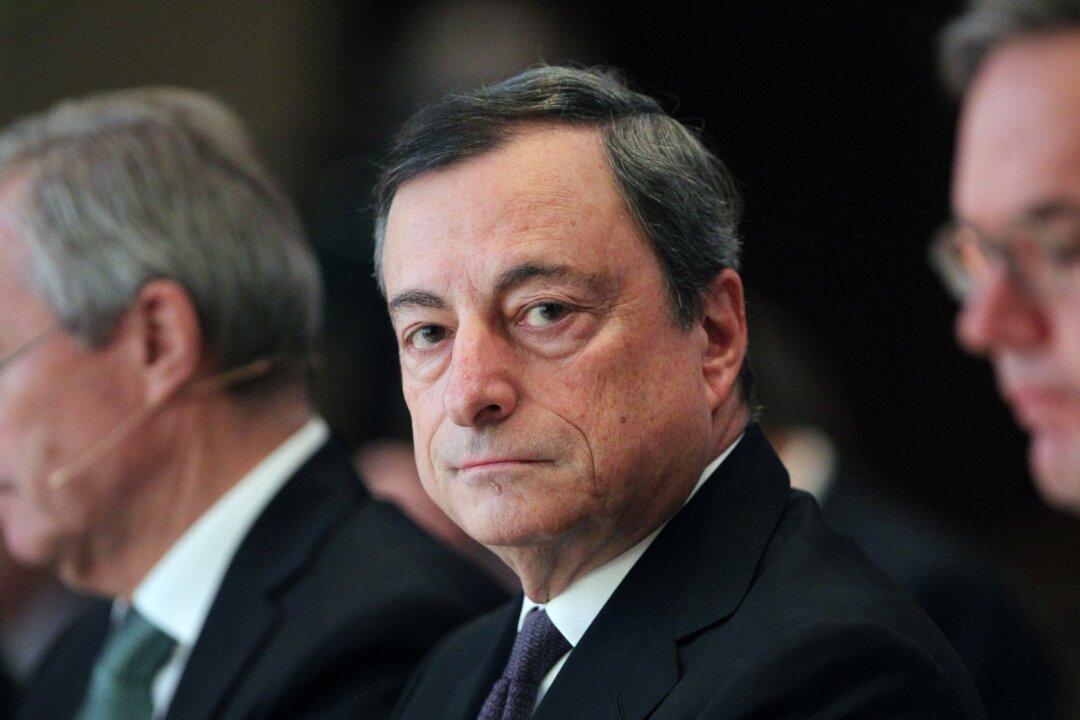NEW YORK—Being a central banker is a tough job. Even when things aren’t falling apart, people blame you for everything in the economy that isn’t perfect.
In the case of the president of the European Central Bank (ECB), Mario Draghi, he himself is complaining about something he should be rather happy about.
The problem in Draghi’s eyes is the old foe of the central bank: inflation.
“Central banks are unable to truly control the trend in inflation,” he said at a meeting at the Economic Club of New York on Dec. 4.
More specifically, he thinks that the ECB isn’t meeting its objective of price stability. For the layman, if there is no price stability, there must be lots of inflation.
It turns out, there isn’t any inflation in the eurozone: Prices only increased 0.1 percent in October compared to last year. Looks pretty stable to the uninitiated.






